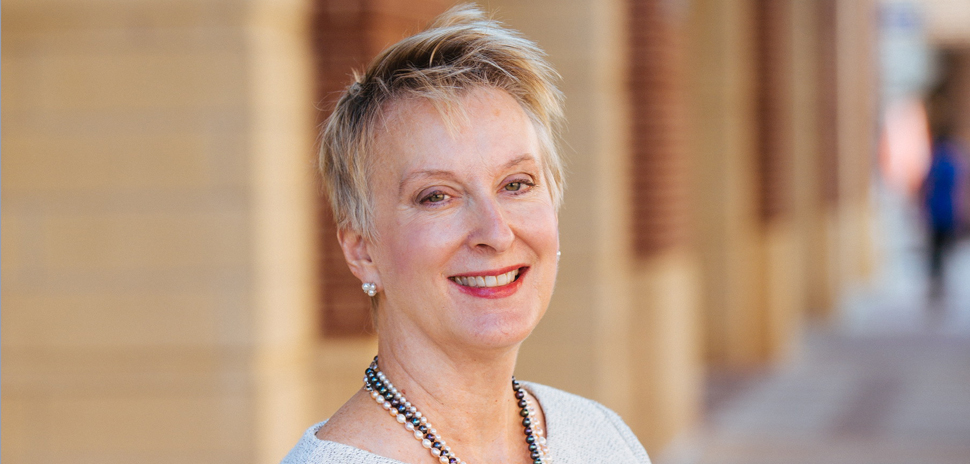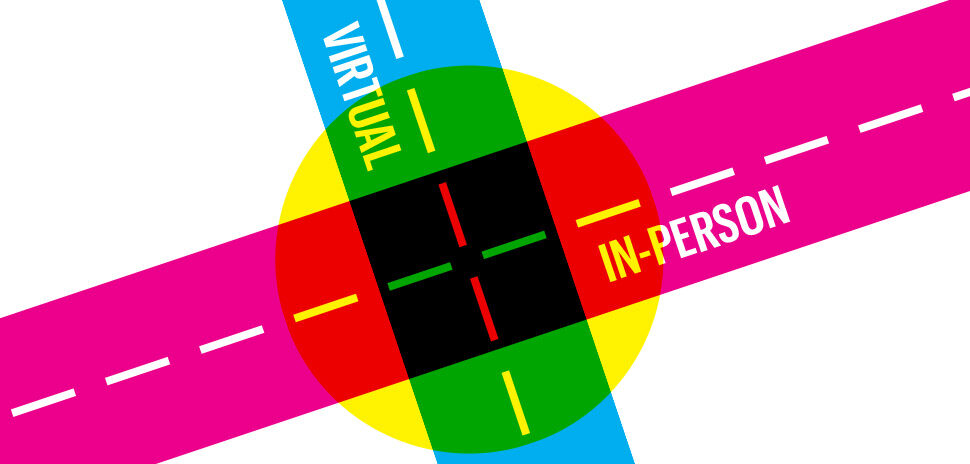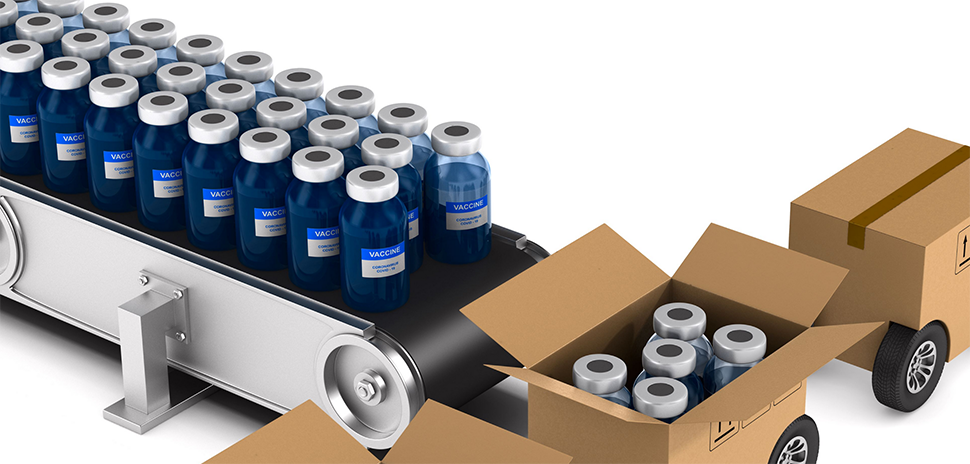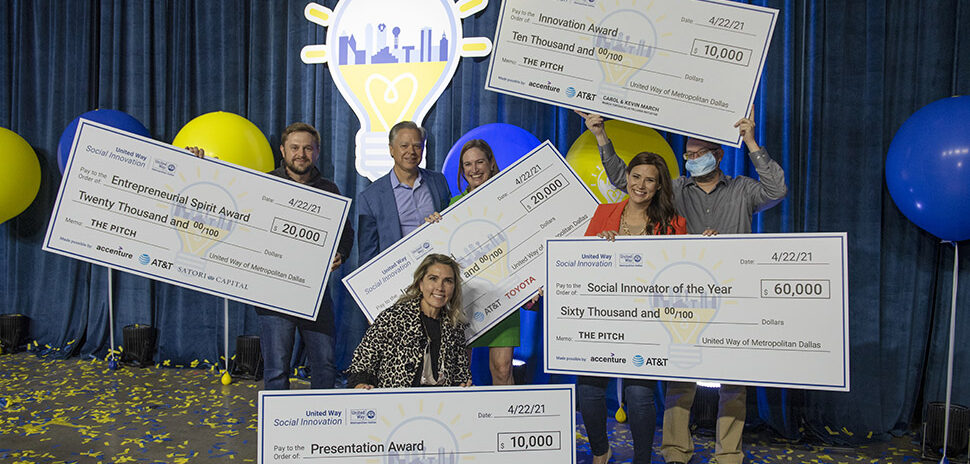![]() The United Way of Metropolitan Dallas serves populations especially vulnerable to economic downturns and health crises in the region, and the COVID-19 pandemic has amplified community needs most urgently.
The United Way of Metropolitan Dallas serves populations especially vulnerable to economic downturns and health crises in the region, and the COVID-19 pandemic has amplified community needs most urgently.
That’s why the organization moved fast to launch a new fund, called the United Way Metropolitan Dallas Coronavirus Response and Recover Fund, to tackle both urgent and long-term needs in North Texas, said Susan Hoff, UWMD’s Chief Strategy, Impact, and Operations Officer.
Thanks to United Way’s corporate partners and other benefactors, it has $1.2 million to kick off the effort, Hoff told Dallas Innovates on Friday. Proceeds will go to community-based organizations assisting those most impacted by the pandemic, and the grant application process begins today, she said.
United Way is known for operating with speed, but the fund set something of a new bar. Start to finish, the fund came together in less than a week.
“This is one of those times where saying ‘We’re all in this together’ is not a catchphrase,” Hoff told Dallas Innovates. “We’re all in the same boat, we’ve got to figure out how to fix it together.”
Dallas Innovates talked with Hoff about moving with speed to launch the fund, how it works, and what’s next for the organization’s focus during the COVID-19 pandemic.
What are your thoughts on the evolving COVID-19 pandemic and economic climate, as it relates to United Way and the Dallas-Fort Worth community?
People keep asking, ‘what can we compare this to?’ And probably the answer is, not much. There are some similarities with things like natural disasters or manmade disasters, or even thinking about 9/11, but the global impact and the long-term impact as well as thinking about locally … I’m not telling you anything you don’t know. It’s really surreal.
What I think is probably the biggest difference is, it’s one of those kinds of things that are rare, but it affects everyone—regardless of where you are—economic status or anything else. It may affect you somewhat differently, but this is one of those times where saying “We’re all in this together” is not a catchphrase.
I was talking with someone last night and the quote that came to my head was, “I find no comfort in the fact that the hole is in your side of the boat.”
We’re all in the same boat, we’ve got to figure out how to fix it together.
United Way is known for working quickly. But the COVID-19 crisis is an especially fast-evolving situation. How did the fund come together within the week?
We went about it in the way that United Way has done well for our 95-plus year history. We identified the needs in the community that we know as of right now. We have strong partnerships with organizations that we fund, as well as our community partners—close to 200 folks at least—and more that we were able to touch base with quickly to get an assessment of what’s going on in their organizations right now. We asked: What are the most critical needs that you’re seeing? What are some service gaps that you have? And then, if you can begin thinking about mid- and longer-term projections, what might you envision?
We gathered that together and cataloged it into a pretty robust needs assessment, which is exactly what we needed to raise the resources. Because the last thing we want to do is put precious dollars towards something that is not the greatest need. We needed to figure out where the real gaps are. And we also wanted to consider where public dollars, for instance, might take care of some of those issues.
We got our assessment done quickly in the first three days of this week, and then simultaneously begin reaching out to donors. We established the fund on Monday, and we’ve been so fortunate to have seed funding from both corporations as well as philanthropic foundations. There’s also a place where individuals can contribute. That’s important because, in a time where we all want to do something, we are not able to go out and volunteer as we might.
United Way wants the dollars to get right to the heart of the need.
How can nonprofits apply for grants?
We will release a grant and RFP early next week. It will be open to nonprofits. It will be a pretty short application that will be targeting the most critical needs first. We hope to get funds out the door to the first set of grants by the end of next week and then continue on a rolling basis. Right now, we’re in response mode, which is basically addressing crisis and critical needs that we anticipate in the coming weeks and months. There are going to be new challenges, you know, we are thinking around economic impact for people across the board, particularly those that were already in challenging situations. One of the things, that we know is that across the board, which is a bit of a startling fact, is that only about 47% of North Texans—so just about half—don’t have adequate savings to weather wage loss or any financial crisis or blip.
That’s a big deal, and it might not be getting something that’s apparent in the first couple of weeks. But coming down the pipe that’s going to be an issue that we will need to be paying attention to.
It will need to evolve. Right now you’ve had three days to look at this.
Yes, you are right. These are educated projections. But we at United Way have years of experience and we are best at identifying a need and breaking it down and addressing it in a sequential way and bringing resources from community partners and corporations to help deploy those funds for the need that’s greatest.
Roughly how many people were you able to talk to for this assessment?
For the assessment, we reached out to about 180 grantees and partners. As of the development of the report, we’d heard back from about 60 of them, and we’re still hearing information. So it gives us a good bellwether. And we’ve heard from a broad swath of organizations that do different things: those that are focused primarily on health, those that are focused on education, those that are focused more on financial stability and income-type services. So we have a good mix of organizations, including smaller and larger ones as well. We’re not just hearing from one specific type of organization or size of issue focus.
Who will be able to apply for this grant?
These funds will go to nonprofits, not individuals. The grant is open to any nonprofit organization serving people in our catchment area, which is Dallas, Collin, Rockwall, and southern Denton counties. So any nonprofit in those areas. That’s the first criteria.
We’ll go through an application process. We want to make sure that we invest funds in an organization that has the capacity to receive the money, manage it, and continue doing the necessary work. That’s an important part of our assessment. We also look at where are the greatest needs, and who is able to best serve those.
What does that assessment of the application look like on your end?
This will be a truncated assessment. When we make large-scale United Way grants, which is legendary in the nonprofit community, the financial assessment is really, really extensive. With those, we’re talking about multi-year commitments and significant grants. With this, we’ll need to know that it’s a 501(3)c and it’s a nonprofit in good standing. We’ll also look at some financial data, such as their 990 tax return, which is probably easy for them to get to us quickly.
We have a board of directors, so it’s going to be relatively simple. It’s very important to make sure that we are serving the dollars well for those who have given them.
What can nonprofits do now to be prepared to fill that RFP out?
Any kind of financial documentation—a 990 tax form, their 501(c)(3) certification. And if they’re already receiving funds from United Way, we’re not going to ask them to resubmit information that we already have on file. But if they’re new to United Way, those are the types of things we’ll be looking for.
In terms of the program, what they’re asking for, we’re looking for how they plan to use the resources to implement. We will have a list of prioritized names. So, initially, it’s probably going to be some direct service around food distribution, emergency services, those types of resources around critical needs.
In addition to food distribution and emergency services, what other critical needs are you hearing about?
We’re hearing quite a bit of feedback in the community around challenges around child care, particularly for first responders, health care workers, and other essential employer employees who have children at home because of the closure of schools. Those essential employees that need to go to work. We’re thinking through solutions about that. We’re also encouraging people as much as possible to stay home and follow the guidelines from our governor and our city and our county.
Those are some of the issues that are popping up. We’re certainly seeing challenges in shelter programs where they are having many people in one space. They may have food challenges. They have lots of children on-site, which they generally don’t have during the day. Those are some other critical needs. It’s also simple things: some people don’t have access to thermometers. While that seems like it would be a pretty simple thing, figuring out how we get basic resources like that to people quickly is going to be really important.
You have a local staff of about 100. How is your own team working right now?
We are working remotely. We closed our office—the actual facility—last week. It will be closed for the next two weeks. But we anticipate that is going to be extended, looking at the way trends are going.
We have daily and weekly calls. We have at least three times a week touch base calls with our entire staff, and then more regular zoom call meetings, particularly with our community impact team as we are building out this needs assessment working establishing the grant application process.
It’s learning to work a little bit differently, but it’s been pretty effective. This is the challenge that I think every person across this community has had is, we have so many parents who are working hard at home—but they also have kids at home. How we think about working around the critical needs of our own team’s children is really important to us. We want to take care of our own team at United Way, and so their needs and their family’s needs are paramount to us. So it’s about how do you manage in this time — what’s normal right now? The needs of children are critical.
What else would you like people to know?
My observation this week has been how kind, engaged, and supportive people are. Everybody’s stressed, and we each have unique ways in which we deal with stress, but I have never seen so many people willing to roll up their sleeves and jump out to say, “What can I do to help?”
We have so many smart people. We have problems right now that we have never really had to address before. I was talking to our team about this: it’s not just a resource problem, although yes … that’s part of it. Thinking about resources as brainpower. If there’s a distribution challenge, for instance, around food. Who can we tap into? Is there a different part of the community or a different sector, that knows how to think about those things that that we haven’t ever had to address before.
We’re not going to solve the challenges we have today with the solutions we had yesterday.
The fund is important and addressing these needs is critical. Beyond that, as an organization, one of the things we excel in is innovation as an organization. I am intrigued by thinking about how we can help be a connector in that space. From nonprofits to innovative thinking to design thinking and corporate thinking. That’s a place where I think we could be a good contributor.
Get on the list.
Dallas Innovates, every day.
Sign up to keep your eye on what’s new and next in Dallas-Fort Worth, every day.


































































